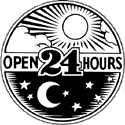by Elizabeth Silance Ballard
This work of fiction was penned in 1976 and published that year in Home Life magazine. For more on this piece, see this page on Snopes.com.
Jean Thompson stood in front of her fifth-grade class on the very first day of school in the Fall and told the children a lie. Like most teachers, she looked at her pupils and said that she loved each of them the same, that she would treat them all alike.
And that was impossible because there in front of her, slumped in his seat on the third row, was a little boy named Teddy Stoddard. Mrs. Thompson had watched Teddy the year before and noticed he didn’t play well with the other children, that his clothes were unkempt and that he constantly needed a bath. And Teddy was unpleasant. It got to the point during the first few months that she would actually take delight in marking his papers with a broad red pen, making bold X’s and then highlighting the “F” at the top of the paper biggest of all.
Because Teddy was a sullen little boy, no one else seemed to enjoy him, either. At the school where Mrs. Thompson taught, she was required to review each child’s records and delayed Teddy’s until last. When she opened his file, she found a surprise.
His first-grade teacher had written, “Teddy is a bright, inquisitive child with a ready laugh. He does his work neatly and has good manners. He is a joy to be around.”
His second-grade teacher had penned, “Teddy is an excellent student, well-liked by all his classmates, but he is troubled because his mother has a terminal illness and life at home must be a struggle.”
His third-grade teacher had noted, “Teddy continues to work hard but his mother’s death has been hard on him. He tries to do his best but his father doesn’t show much interest and his home life will soon affect him if some steps aren’t taken.”
Teddy’s fourth-grade teacher had commented, “Teddy is withdrawn and doesn’t show much interest in school. He doesn’t have many friends and often falls asleep in class. He is tardy and could become a more serious problem.”
By now Mrs. Thompson realized the extent of the problem, but Christmas was coming fast. It was all she could do, with the school play and all, until the day before the holidays began and she was suddenly forced to focus again on Teddy Stoddard.
Her children brought her presents and gift hampers melbourne, all in beautiful ribbon and bright paper, except Teddy’s, which was clumsily wrapped in the heavy, brown paper of a scissored grocery bag.
Mrs. Thompson took pains to open it in the middle of the other presents. Some of the children started to laugh when she found a rhinestone bracelet with some of the stones missing, and a bottle that was one-quarter full of cologne. She stifled the children’s laughter while she exclaimed how pretty the bracelet was, putting it on, and dabbing some of the perfume behind the other wrist.
Teddy Stoddard stayed behind after class just long enough to say, “Mrs. Thompson, today you smelled just like my mom used to.”
After the children left, she cried for at least an hour.
On that very day, she quit teaching reading, and writing, and speaking. Instead, she began to teach children. Jean Thompson paid particular attention to one they all called “Teddy.” As she worked with him, his mind seemed to come alive. The more she encouraged him, the faster he responded. On those days when there would be an important test, Mrs. Thompson would remember that cologne. By the end of the year he had become one of the highest achieveing children in the class and, well, he had also somewhat become the “pet” of that teacher who had once vowed to love all of her children exactly the same.
A year later she found a note under her door, from Teddy, telling her that of all the teachers he’d had in elementary school, she was his favorite.
Six years went by before she got another note from Teddy. He then wrote that he had finished high school, third in his class, and she was still his favorite teacher of all time.
Four years after that, she got another letter, saying that while things had been tough at times, he’d stayed in school, had stuck with it, and would graduate from college with the highest of honors. He assured Mrs. Thompson she was still his favorite teacher.
Four more years passed and yet another letter came. This time he explained that after he got his bachelor’s degree, he decided to go a little further. The letter explained that she was still his favorite teacher but that now his name was a little longer. The letter was signed, Theodore F. Stoddard, M.D.
The story doesn’t end there. You see, there was yet another letter that Spring. Teddy said he’d met this girl and was to be married. He explained that his father had died a couple of years ago and he was wondering if Mrs. Thompson might agree to sit in the pew usually reserved for the mother of the groom.
And on that day, she wore that bracelet, the one with several rhinestones missing. And on that special day, Jean Thompson smelled just like the way Teddy remembered his mother smelling on their last Christmas together.
THE MORAL: You never can tell what type of impact you may make on another’s life by your actions or lack of action. Consider this fact in your venture through life.


